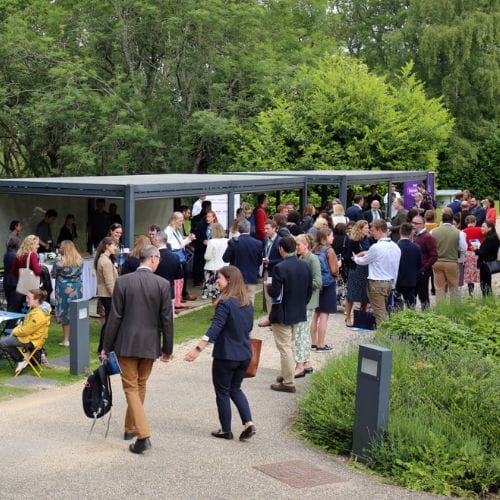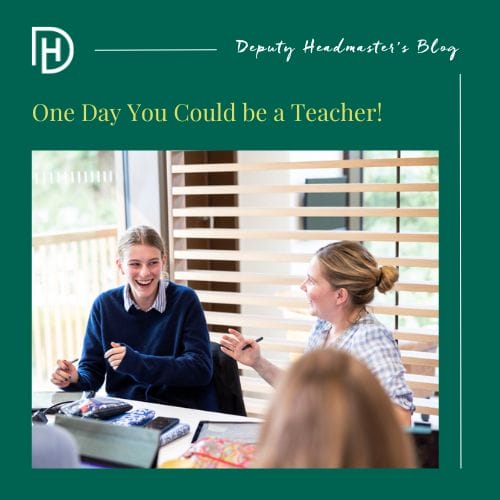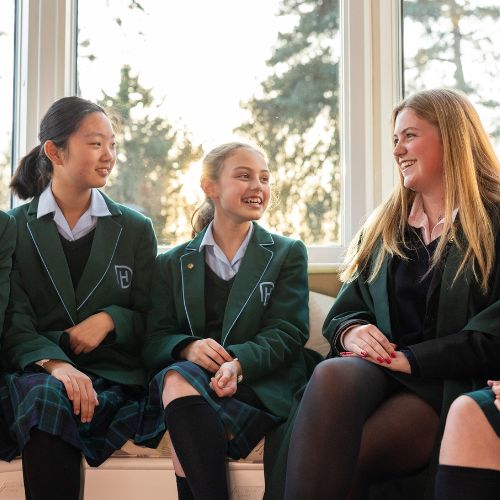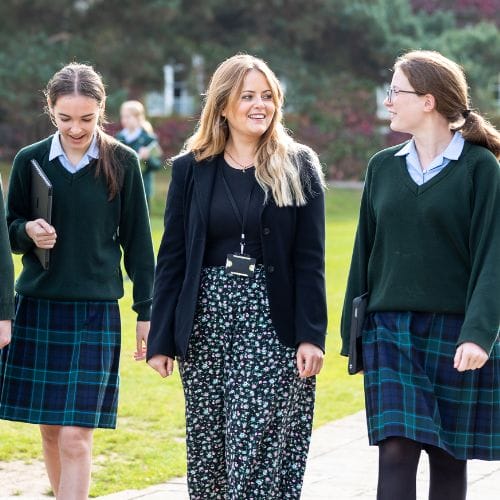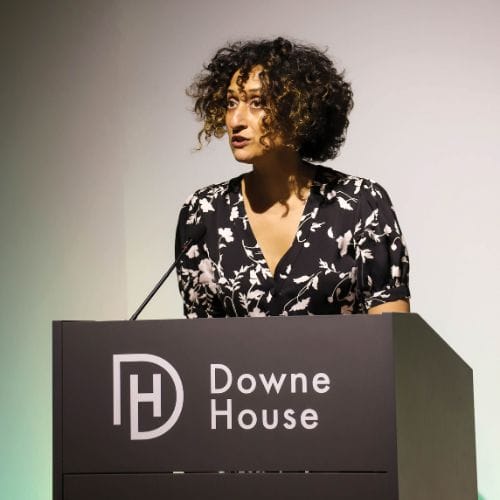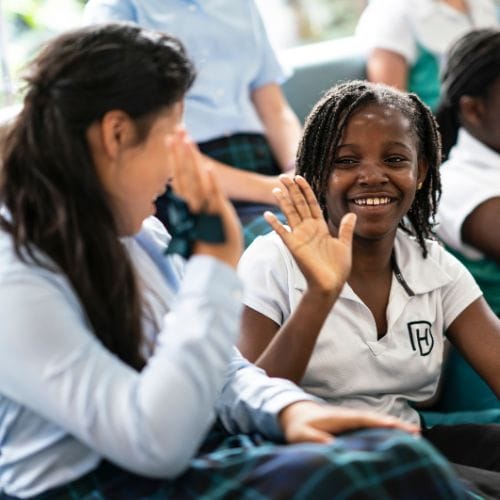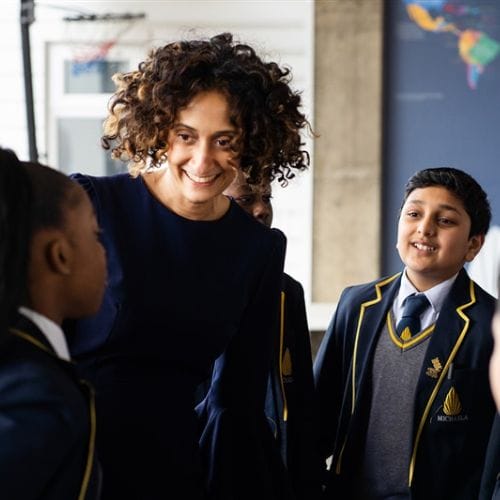
We are proud of our global perspective, having built close links with a dozen other leading schools across every continent. Many of our pupils apply for our Global Schools Exchange Programme in Years 10 and 12, which gives them an opportunity to visit these countries.
All our Year 8 pupils visit Downe House Sauveterre, our school near Toulouse in southwest France, for one term there, building a range of skills from the French language to independence.
Our sister schools in Muscat and Riyadh also signal to the girls that our society is truly global and how important it is to have a global perspective.
But we are also interested in encouraging our pupils to be outward looking in the sense of simply being curious about current events. School life is busy, but it’s always healthy to have a curiosity about contemporary news stories.
Any visitor to the school’s magnificent Murray Centre will see that a wide range of newspapers and publications are always available to our pupils. Our Librarian is also planning to give all our pupils and staff access to the amazing app PressReader, which gives online access to over 7,000 newspapers and magazines from 120 countries in more than 60 languages.
But all teachers and parents know that access to these resources does not guarantee they will be read and appreciated by teenagers!
So, ahead of the Easter holidays, I thought I would pass on some ‘light touch’ tips about how we can encourage our children to have a lively interest in current events as we go about our daily lives…
News broadcasts on radio and TV always start with around five or six headlines. Just before the broadcast begins, get each family member to guess which topics/stories will make the first three headlines. You’re a winner if you predict any one correctly, and a jackpot winner if you predict all three in the correct order! This can be surprisingly fun, particularly if a chocolate reward is at stake. Obviously, a little prior knowledge is required to play the game, but you can ‘model’ it first, and the rest of the family will get better with practice (it can get quite addictive, and you feel quite clever if you score points on this game!).
True or False?
Identify a story in the media and present it as a ‘true or false’ question. Examples (taken on March 18 from the BBC News app) could be:
- True or False? – Novak Djokovic has been told he cannot play in the USA’ Miami Open tennis tournament because he has not been vaccinated against Covid-19 (answer: True).
- True or False? – President Biden has said that the International Criminal Court was wrong to issue an arrest warrant for Vladimir Putin (answer: False, Biden has “welcomed” this announcement)
This can be an effective way to prompt some thought about likely or surprising outcomes in current events.
The Week Magazine
This is an excellent publication to have on the kitchen table. The Week provides a well written and concise digest of all the previous week’s main stories, as well as a synopsis of differing views and opinions taken from a range of different media. It focuses on the UK but includes a global perspective, too. Also, for those of a more curious disposition, there are always one or two features that explore contemporary issues in more depth. It is colourful and engaging and there are some light-hearted features, too; I particularly like the double-page spread on ‘Properties currently for sale’ which always creates a healthy debate in my family about which one we would choose. There is a ‘Junior’ version of The Week but I find teenagers prefer the ‘Senior’ version.
Leave a newspaper on the kitchen table
My son recently came downstairs for breakfast and was horrified to spot the following headline staring at him from a three-day old copy of The Times which was still on the kitchen table: ‘Compulsory maths until 18 for every child’. “You have to be kidding!” he exclaimed with a look of horror. That’s a lot more than he normally says at 7.15am. And it was the first time in months that he picked up the paper and read it!
Radio: Stop the conversation when an interesting item comes on
I find my children become interested in news items on the radio if I suddenly interrupt them by saying “Hang on! Just be quiet a moment! This is very interesting – listen, just for a moment…”. Once the journalist has stopped speaking, this will then be followed by mutterings along the lines of: “My goodness, I wasn’t expecting that: can you believe it? Amazing…”. This normally elicits questions like “What? What was all that about? What’s going on…?…”
It is, or course, important to recognise that the younger generation are not only increasingly getting the majority of their news online, but they are also turning away from traditional media organisations (such as the BBC and The Times) to find out about current events on social media sites and YouTube, often from online influencers and celebrities.
According to a recent poll by Common Sense and SurveyMonkey, more than half of teenagers (54%) get news at least a few times a week from social media platforms such as Instagram, Facebook, and Twitter and 50% get news from YouTube.
Interestingly, of those who get their news from such platforms, six in 10 say they are more likely to get it from celebrities, influencers, and personalities rather than from news organisations who are using the platform.
This does not necessarily mean they trust these sources. The same survey found that only 53% of those teenagers who get news from social media say it helps them better understand what is going on, and 19% say it has made them more confused about current events.
Rather than resist young people’s tendency to seek news online, it’s probably more productive to ask them about it and, occasionally – and supportively, and non-confrontationally – challenge or test their understanding. For example, use outlets like the radio and The Week to pick out details, views, or nuances about stories, and ask them if they have picked up on these via their own outlets.
If they have not, it’s likely they will soon begin to think their chosen media is less trustworthy and less interesting.
You can learn more about Downe House’s approach to being outward looking by listening to this podcast.

Mr Matt Godfrey
godfreym@downehouse.net
